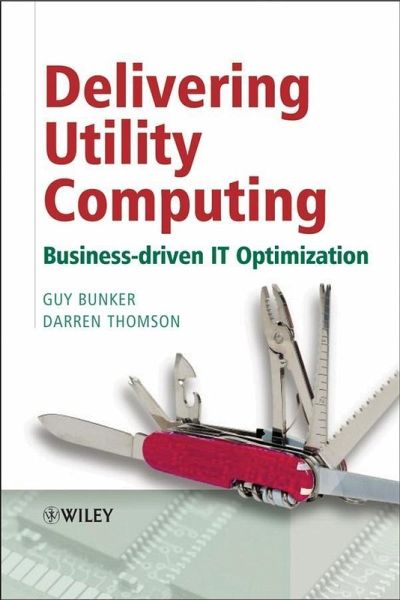
Delivering Utility Computing (eBook, PDF)
Business-driven IT Optimization
Versandkostenfrei!
Sofort per Download lieferbar
98,99 €
inkl. MwSt.
Weitere Ausgaben:

PAYBACK Punkte
0 °P sammeln!
Learn how to design and deploy utility computing systems to save costs and improve the value that IT delivers. The economic downturn that occurred after the .com boom and bust has put the cost of IT in the spotlight. By following the principles of utility computing, also known as on-demand computing, real-time infrastructure, or adaptive enterprise, businesses can improve the IT services they offer, whilst reducing costs and improving agility. Delivering Utility Computing proposes and documents a methodology for delivering utility computing, and provides detailed advice on its principles and b...
Learn how to design and deploy utility computing systems to save costs and improve the value that IT delivers. The economic downturn that occurred after the .com boom and bust has put the cost of IT in the spotlight. By following the principles of utility computing, also known as on-demand computing, real-time infrastructure, or adaptive enterprise, businesses can improve the IT services they offer, whilst reducing costs and improving agility. Delivering Utility Computing proposes and documents a methodology for delivering utility computing, and provides detailed advice on its principles and benefits. The authors describe a complete and step-by-step process for adapting to a utility computing system, based on proven methodology. Delivering Utility Computing: * Provides a comprehensive description of the utility model, offering guidance on design, deployment and maintenance issues, and a strong section on service level agreements (SLAs). * Explains in detail how to improve efficiencies and achieve cost reduction in the IT department. * Adopts a thorough approach, taking into account current baselines, phasing, task involved, success factors and best practice principles. * Presents a method rooted in theory, yet broad-based and practical, illustrated throughout with examples and real-world case studies. This invaluable text provides CIOs, CFOs, system administrators, IT policy makers and professionals looking to develop utility computing practices in their organizations, as well as researchers in computer science, statisticians, engineers, and graduate students, with an in-depth understanding of the concepts and practicalities of utility computing.
Dieser Download kann aus rechtlichen Gründen nur mit Rechnungsadresse in D ausgeliefert werden.












